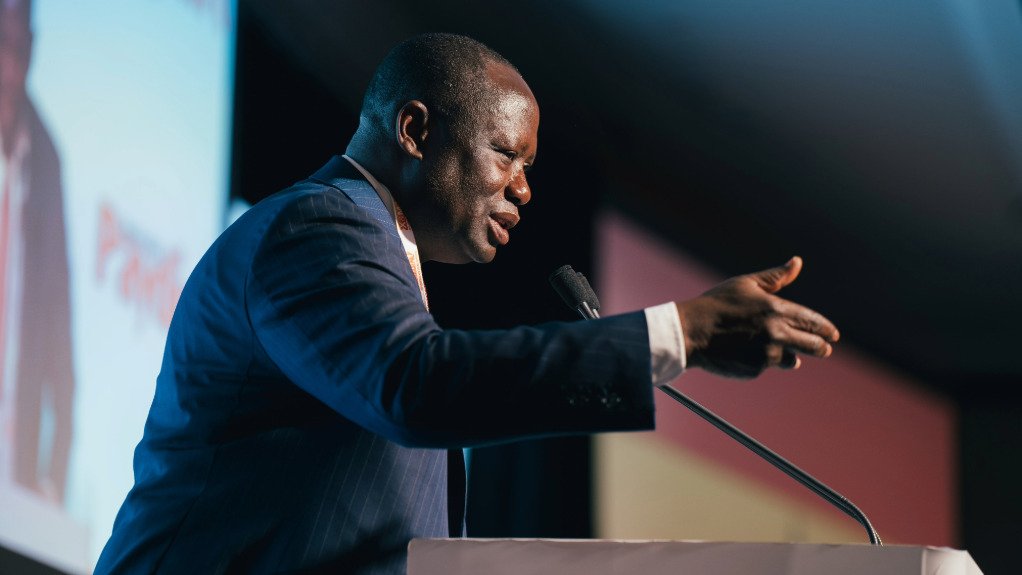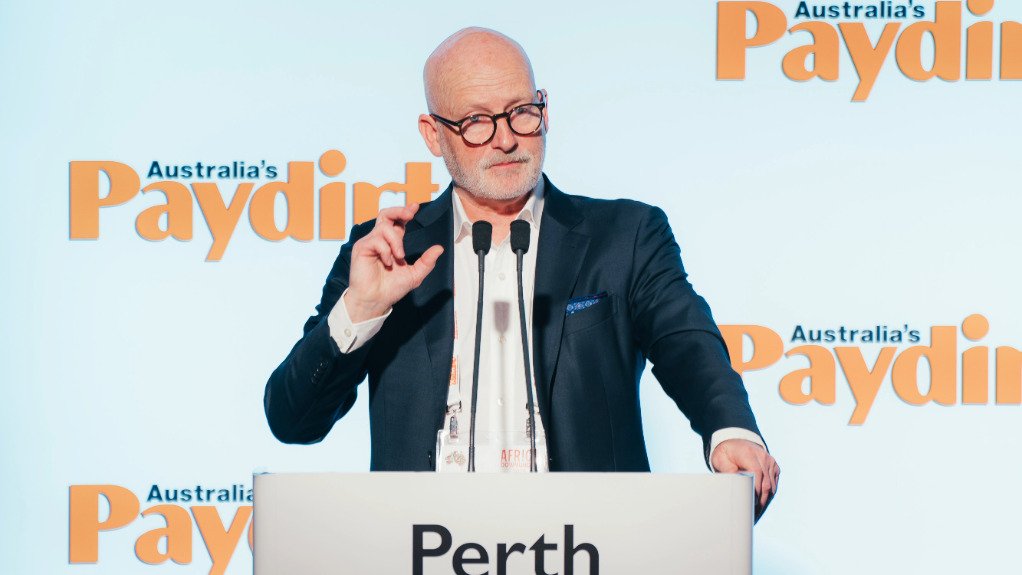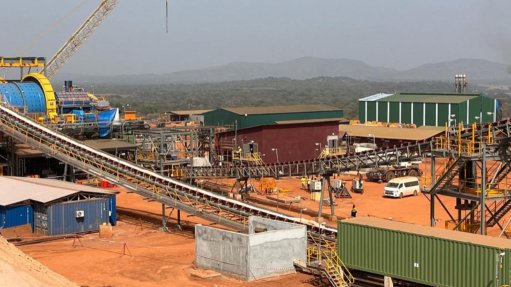Minister defends investment climate in Ghana amid Azumah dispute



Ghana Lands and Natural Resources Minister Armah-Kofi Buah
Ibaera Capital partner James Wallbank
Ghana’s Lands and Natural Resources Minister, Armah-Kofi Buah, has moved to assure international investors that the West African nation remains a stable and attractive mining jurisdiction, despite a dispute that has delayed development of the Black Volta gold project.
Speaking at the Africa Down Under conference in Perth on Thursday, Buah said it was important to keep the matter in perspective.
“In my presentation, I was very clear about the number of companies operating happily in Ghana. I talked about the ten largest companies, five of which are active in Ghana, including Australian companies,” he said.
“Yes, there is a dispute involving Azumah. That dispute was started in 2023. The new government took office in 2025, and the first thing that I did as Minister was to write to them that we are committed to addressing these disputes.
“It is an isolated case that is being dealt with,” Buah stressed, while acknowledging Azumah’s frustrations.
His comments followed a forthright presentation by Ibaera Capital partner James Wallbank, whose fund is the major shareholder in Azumah. He warned that while Ghana had significant geological potential and an experienced workforce, policy shifts and legal uncertainty were starting to erode investor confidence.
Azumah’s Black Volta project, which Wallbank described as a rare build-ready gold development with the potential to deliver more than 138 000 oz/y over 12 years, has stalled amid litigation with local mining contractor Engineers & Planners.
“At the micro level, this is just really about a simple dispute between Azumah Resources and a mining contractor,” Wallbank said. “But at the macro level, this is also about what is happening in terms of changes in Ghana’s attitude to maximising local participation and ownership, and what impact those changes are having on the way that we can operate in Ghana.”
Wallbank highlighted recent government policy requiring mines to outsource operations to majority Ghanaian-owned contractors, Minerals Commission proposals to cut mining lease terms from 30 to 15 years, and suggestions that international arbitration for disputes could be replaced by local courts.
“None of these things on their own are necessarily wrong,” he said. “But together they are creating uncertainty for investors. It is creating concern, and we are seeing a deteriorating investor appetite for Ghana.”
Azumah has invested more than $100-million in feasibility work and approvals for Black Volta, which Wallbank said had the potential to generate more than $1-billion in net present value at current gold prices, while delivering revenues to Ghana through jobs, taxes, royalties and community investment.
“This area in the Upper West Region of Ghana will become the factory of the future for this region,” Wallbank said. “It will become a major employment and skills development centre for the northwest of Ghana.”
However, he stressed that litigation had frozen progress, already costing Ghana an estimated $721-million in lost revenues.
BALANCING LOCAL BENEFIT AND STABILITY
The dispute highlights the challenge facing many African governments of maximising local participation and value creation while maintaining the regulatory stability international investors demand.
The resurgence of resource nationalism featured strongly at the African Down Under conference this week. Speakers have highlighted that new mining codes are popping up across West Africa with a focus on greater regulatory control, increased taxes and greater local content.
“There is no question over the widespread international support for governments having the objective of maximising local benefit. There is nobody that is talking against that position. But the challenge is how is that achieved? How do you achieve that, and can you maintain the balance to ensure that it doesn’t create upset in the broader marketplace?,” said Wallbank.
For his part, Buah maintained that Ghana remained committed to responsible resource development and to resolving the Azumah dispute in a way that demonstrated its reputation as a mining destination of choice.
Article Enquiry
Email Article
Save Article
Feedback
To advertise email advertising@creamermedia.co.za or click here
Announcements
What's On
Subscribe to improve your user experience...
Option 1 (equivalent of R125 a month):
Receive a weekly copy of Creamer Media's Engineering News & Mining Weekly magazine
(print copy for those in South Africa and e-magazine for those outside of South Africa)
Receive daily email newsletters
Access to full search results
Access archive of magazine back copies
Access to Projects in Progress
Access to ONE Research Report of your choice in PDF format
Option 2 (equivalent of R375 a month):
All benefits from Option 1
PLUS
Access to Creamer Media's Research Channel Africa for ALL Research Reports, in PDF format, on various industrial and mining sectors
including Electricity; Water; Energy Transition; Hydrogen; Roads, Rail and Ports; Coal; Gold; Platinum; Battery Metals; etc.
Already a subscriber?
Forgotten your password?
Receive weekly copy of Creamer Media's Engineering News & Mining Weekly magazine (print copy for those in South Africa and e-magazine for those outside of South Africa)
➕
Recieve daily email newsletters
➕
Access to full search results
➕
Access archive of magazine back copies
➕
Access to Projects in Progress
➕
Access to ONE Research Report of your choice in PDF format
RESEARCH CHANNEL AFRICA
R4500 (equivalent of R375 a month)
SUBSCRIBEAll benefits from Option 1
➕
Access to Creamer Media's Research Channel Africa for ALL Research Reports on various industrial and mining sectors, in PDF format, including on:
Electricity
➕
Water
➕
Energy Transition
➕
Hydrogen
➕
Roads, Rail and Ports
➕
Coal
➕
Gold
➕
Platinum
➕
Battery Metals
➕
etc.
Receive all benefits from Option 1 or Option 2 delivered to numerous people at your company
➕
Multiple User names and Passwords for simultaneous log-ins
➕
Intranet integration access to all in your organisation



















